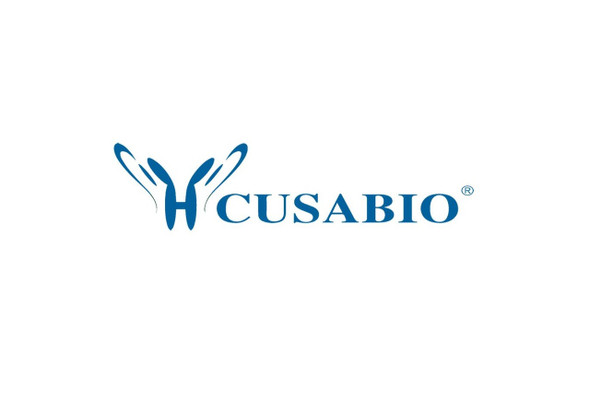Cusabio Rattus norvegicus Recombinants
Recombinant Rat Putative phospholipase B-like 2 (Plbd2) | CSB-EP683927RA
- SKU:
- CSB-EP683927RA
- Availability:
- 3 - 7 Working Days
Description
Recombinant Rat Putative phospholipase B-like 2 (Plbd2) | CSB-EP683927RA | Cusabio
Alternative Name(s): LAMA-like protein 2Lamina ancestor homolog 2;Phospholipase B domain-containing protein 2
Gene Names: Plbd2
Research Areas: Others
Organism: Rattus norvegicus (Rat)
AA Sequence: GALPTLGPGWRRQNPEPPASRTRSLLLDAASGQLRLEYGFHPDAVAWANLTNAIRETGWAYLDLGTNGSYNDSLQAYAAGVVEASVSEELIYMHWMNTVVNYCGPFEYEVGYCEKLKSFLEANLEWMQREMELSPDSPYWHQVRLTLLQLKGLEDSYEGRLTFPTGRFNIKPLGFLLLQISGDLEDLEPALNKTNTKPSVGSGSCSALIKLLPGSHDLLVAHNTWNSYQNMLRIIKKYRLQFREGPQEEYPLIAGNNLIFSSYPGTIFSGDDFYILGSGLVTLETTIGNKNPALWKYVQPQGCVLEWIRNIVANRLALDGATWADVFRRFNSGTYNNQWMIVDYKAFIPNGPSPGSRVLTILEQIPGMVVVADKTAELYKTTYWASYNIPYFESVFNASGLQALVAQYGDWFSYTRNPRAKIFQRDQSLVEDVDTMVRLMRYNDFLHDPLSLCEACSPKPNAENAISARSDLNPANGSYPFQALRQRAHGGIDVKVTSVALAKYMSMLAASGPTWDQLPPFQWSKSPFHNMLHMGQPDLWMFSPVKVPWD
Source: E.coli
Tag Info: N-terminal 6xHis-SUMO-tagged
Expression Region: 36-585aa
Sequence Info: Full Length of Mature Protein
MW: 77.9 kDa
Purity: Greater than 90% as determined by SDS-PAGE.
Relevance: Putative phospholipase.
Reference: Genome sequence of the Brown Norway rat yields insights into mammalian evolution.Gibbs R.A., Weinstock G.M., Metzker M.L., Muzny D.M., Sodergren E.J., Scherer S., Scott G., Steffen D., Worley K.C., Burch P.E., Okwuonu G., Hines S., Lewis L., Deramo C., Delgado O., Dugan-Rocha S., Miner G., Morgan M. , Hawes A., Gill R., Holt R.A., Adams M.D., Amanatides P.G., Baden-Tillson H., Barnstead M., Chin S., Evans C.A., Ferriera S., Fosler C., Glodek A., Gu Z., Jennings D., Kraft C.L., Nguyen T., Pfannkoch C.M., Sitter C., Sutton G.G., Venter J.C., Woodage T., Smith D., Lee H.-M., Gustafson E., Cahill P., Kana A., Doucette-Stamm L., Weinstock K., Fechtel K., Weiss R.B., Dunn D.M., Green E.D., Blakesley R.W., Bouffard G.G., De Jong P.J., Osoegawa K., Zhu B., Marra M., Schein J., Bosdet I., Fjell C., Jones S., Krzywinski M., Mathewson C., Siddiqui A., Wye N., McPherson J., Zhao S., Fraser C.M., Shetty J., Shatsman S., Geer K., Chen Y., Abramzon S., Nierman W.C., Havlak P.H., Chen R., Durbin K.J., Egan A., Ren Y., Song X.-Z., Li B., Liu Y., Qin X., Cawley S., Cooney A.J., D'Souza L.M., Martin K., Wu J.Q., Gonzalez-Garay M.L., Jackson A.R., Kalafus K.J., McLeod M.P., Milosavljevic A., Virk D., Volkov A., Wheeler D.A., Zhang Z., Bailey J.A., Eichler E.E., Tuzun E., Birney E., Mongin E., Ureta-Vidal A., Woodwark C., Zdobnov E., Bork P., Suyama M., Torrents D., Alexandersson M., Trask B.J., Young J.M., Huang H., Wang H., Xing H., Daniels S., Gietzen D., Schmidt J., Stevens K., Vitt U., Wingrove J., Camara F., Mar Alba M., Abril J.F., Guigo R., Smit A., Dubchak I., Rubin E.M., Couronne O., Poliakov A., Huebner N., Ganten D., Goesele C., Hummel O., Kreitler T., Lee Y.-A., Monti J., Schulz H., Zimdahl H., Himmelbauer H., Lehrach H., Jacob H.J., Bromberg S., Gullings-Handley J., Jensen-Seaman M.I., Kwitek A.E., Lazar J., Pasko D., Tonellato P.J., Twigger S., Ponting C.P., Duarte J.M., Rice S., Goodstadt L., Beatson S.A., Emes R.D., Winter E.E., Webber C., Brandt P., Nyakatura G., Adetobi M., Chiaromonte F., Elnitski L., Eswara P., Hardison R.C., Hou M., Kolbe D., Makova K., Miller W., Nekrutenko A., Riemer C., Schwartz S., Taylor J., Yang S., Zhang Y., Lindpaintner K., Andrews T.D., Caccamo M., Clamp M., Clarke L., Curwen V., Durbin R.M., Eyras E., Searle S.M., Cooper G.M., Batzoglou S., Brudno M., Sidow A., Stone E.A., Payseur B.A., Bourque G., Lopez-Otin C., Puente X.S., Chakrabarti K., Chatterji S., Dewey C., Pachter L., Bray N., Yap V.B., Caspi A., Tesler G., Pevzner P.A., Haussler D., Roskin K.M., Baertsch R., Clawson H., Furey T.S., Hinrichs A.S., Karolchik D., Kent W.J., Rosenbloom K.R., Trumbower H., Weirauch M., Cooper D.N., Stenson P.D., Ma B., Brent M., Arumugam M., Shteynberg D., Copley R.R., Taylor M.S., Riethman H., Mudunuri U., Peterson J., Guyer M., Felsenfeld A., Old S., Mockrin S., Collins F.S.Nature 428:493-521(2004)
Storage: The shelf life is related to many factors, storage state, buffer ingredients, storage temperature and the stability of the protein itself. Generally, the shelf life of liquid form is 6 months at -20?/-80?. The shelf life of lyophilized form is 12 months at -20?/-80?.
Notes: Repeated freezing and thawing is not recommended. Store working aliquots at 4? for up to one week.
Function: Putative phospholipase.
Involvement in disease:
Subcellular Location: Lysosome lumen
Protein Families: Phospholipase B-like family
Tissue Specificity:
Paythway:
Form: Liquid or Lyophilized powder
Buffer: If the delivery form is liquid, the default storage buffer is Tris/PBS-based buffer, 5%-50% glycerol. If the delivery form is lyophilized powder, the buffer before lyophilization is Tris/PBS-based buffer, 6% Trehalose, pH 8.0.
Reconstitution: We recommend that this vial be briefly centrifuged prior to opening to bring the contents to the bottom. Please reconstitute protein in deionized sterile water to a concentration of 0.1-1.0 mg/mL.We recommend to add 5-50% of glycerol (final concentration) and aliquot for long-term storage at -20?/-80?. Our default final concentration of glycerol is 50%. Customers could use it as reference.
Uniprot ID: Q4QQW8
HGNC Database Link: N/A
UniGene Database Link: UniGene
KEGG Database Link: KEGG
STRING Database Link: STRING
OMIM Database Link: N/A









